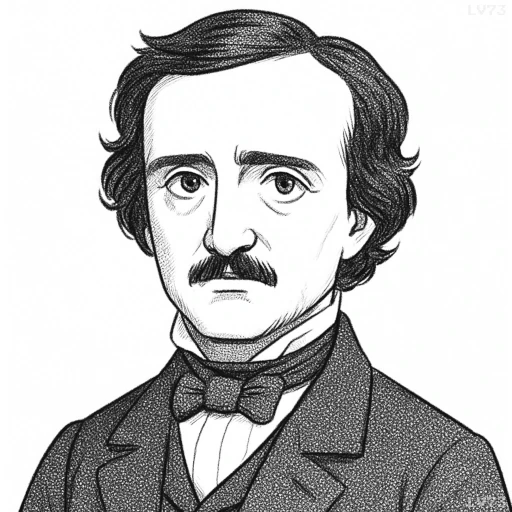“The nose of a mob is its imagination. By this, at any time, it can be quietly led.”

- January 19, 1809 – October 7, 1849
- American
- Novelist, poet, critic
table of contents
Quote
“The nose of a mob is its imagination. By this, at any time, it can be quietly led.”
Explanation
In this quote, Edgar Allan Poe suggests that the true power of a mob lies not in its reason or logic, but in its imagination. The phrase “the nose of a mob” metaphorically refers to the mob’s instinctive desires, impulses, and emotional drives, which are often governed by fantasies or irrational beliefs. By appealing to these emotions and fantasies, one can easily manipulate or lead the mob in any direction, as long as the imagination is stirred. Poe highlights how irrationality and emotion play a central role in collective behavior, and how these forces can be directed by those who understand the psychological vulnerability of the masses.
Poe’s perspective aligns with the Romantic view of human nature, which often emphasized the irrational and impulsive aspects of human behavior. In the 19th century, as industrialization and political movements were stirring social unrest, Poe’s insight into the mob mentality resonated with the growing understanding that people, when gathered in large groups, often act based on emotion rather than logic. Poe’s work, often exploring themes of psychological manipulation and fear, reflects his awareness of the fragility of individual reason within the crowd.
In modern times, this quote continues to be relevant in understanding how public opinion and mass movements can be influenced, especially in the age of social media and political rhetoric. Leaders, advertisers, and influencers often understand that emotion—whether through fear, desire, or hope—can be used to guide and manipulate public sentiment. Just as Poe observed in the 19th century, today’s media environment shows how quickly and easily people’s imagination can be activated to drive collective behavior. This underscores the importance of critical thinking and awareness in the face of emotional manipulation in the public sphere.
Would you like to share your impressions or related stories about this quote in the comments section?



